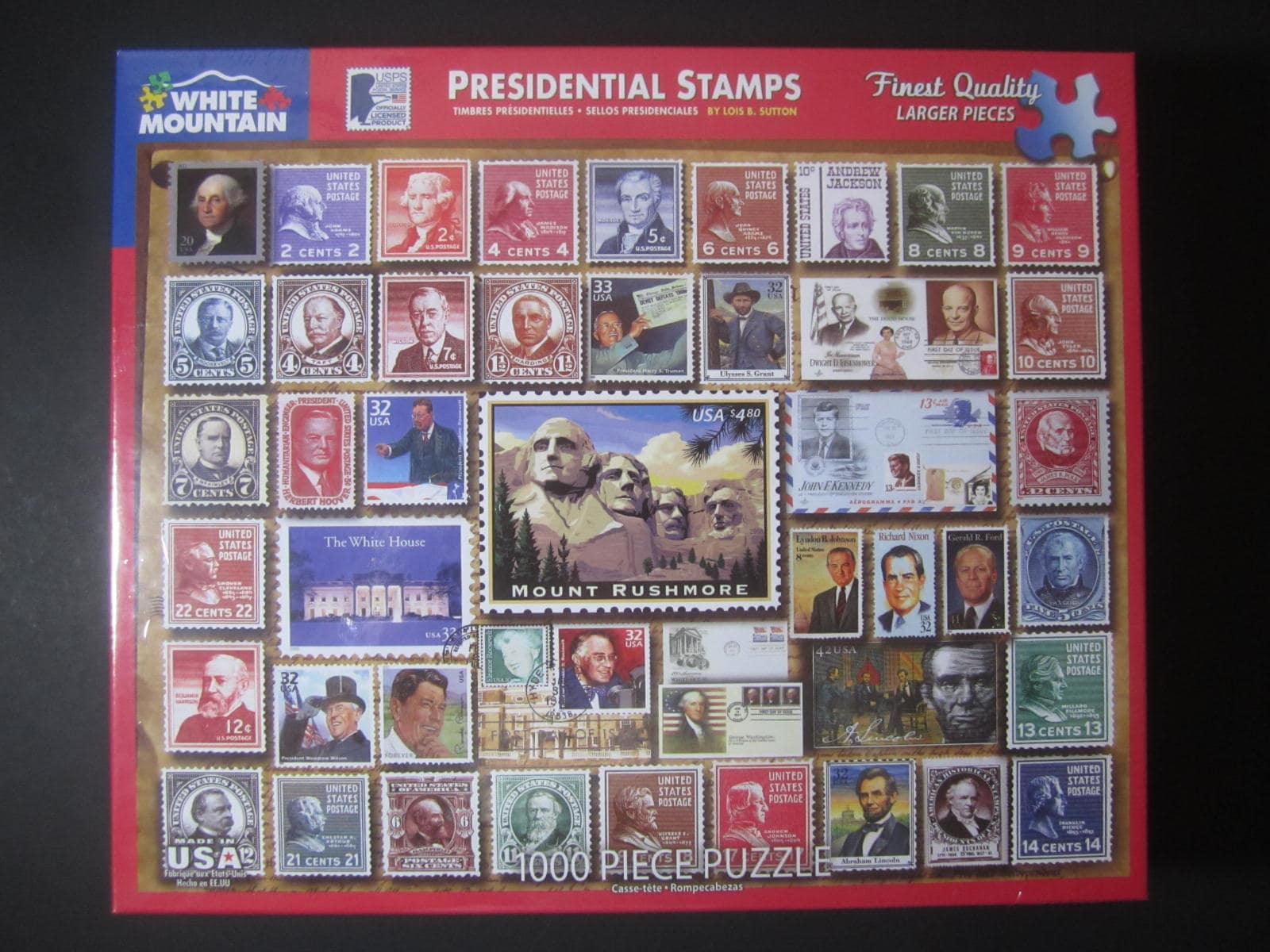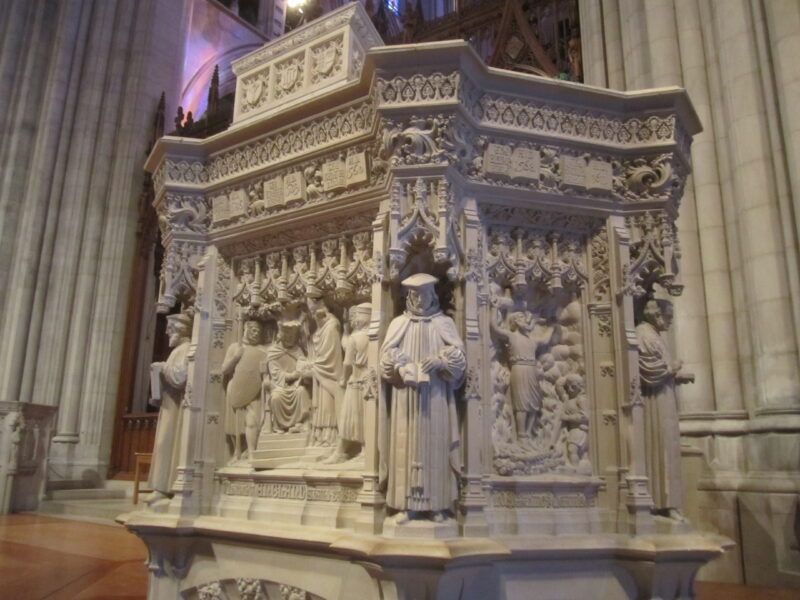In today’s world, we seem to have become very polarized. Differences of opinions seem to be forbidden. The last two Presidents, Donald Trump and Barack Obama, are two prime examples of this polarization. Both have maintained approval ratings just over fifty percent, but their unfavorable ratings have been very close to that, too.
With those two Presidents, at least, you either love them or you hate them and there aren’t too many people in the middle ground. But, I believe, that is much more a reflection of our society as a whole. As bad as those two Presidents appear in opinion polls, Congress has fared far worse. I cannot remember the last time Congress even had a twenty percent approval rating.
Congress’ woes are not party generated either. Both parties have controlled Congress and neither has led that group out of the rating cellar. So, despite our seeming disgust of our Presidents, Congress seems even less thought of.
With all that said, I don’t think current popularity is the best way to judge whether a President is truly popular in the long run. I think true popularity stands the test of time. It is more a reflection of the legacy an individual leaves long after their body has expired. For my Least Popular President Poll, I’m going to use a different set of guidelines.
The first guideline I’m going to use is if the average American, who knows little to nothing about the Presidents, was asked to name ten Presidents, I highly doubt many, if any, of these Presidents would show up on their list. Outside those who live near areas where a President was born, died, lived or did something for that community, very few would even realize that those on my list were even a President.
The second tool I am using is if someone were asked the question: “Who is (insert the President’s name here)?” I highly doubt many are going to say, “Oh, he was a President.”
In writing different blogs about every single President, I came up with another gauge: how many books are there about a President and/or how hard is it to find information about him.
My final gauge is the popularity of the blogs I post about a President. Usually the most current Presidents receive pretty strong viewership, the other “less popular” ones, don’t stir nearly as much interest.
I will list the Presidents in descending order. Briefly, I will describe the President. Then I will explain why this person seems to be less than popular than those not on this list. Next I will try to explain how, since they don’t seem to be popular, they got to be President in the first place (Claim to Fame). What fun would it be if I didn’t include an interesting fact about this person? I also try to explain why I believe they have fallen out of favor with history (Why isn’t the President Popular). Finally, I will note my favorite blog from the ones I have written about that President (you should be able to click it and go to that page).
So, here we go with my Top Ten Least Popular Presidents (you can click their name to go to their page on Presidential Crossroads):
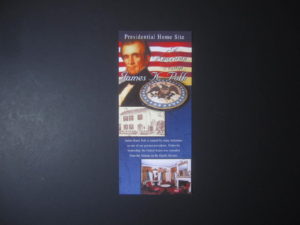
10. James K. Polk (11th President – 1845-1849)
This is the saddest President for me to put on this list. He is probably in my Top Ten List of favorite Presidents. I like him because he got things done, he did what he said he was going to do, and he only served one term like he promised.
Polk was possibly the worse manager as President. He preferred micro-managing and when others would not do things the way he liked, he pretty much just did it himself. Although he was relatively young when he left office, he has the shortest reign of retirement of the Presidents who survived their terms in office. He basically worked himself to death. Still, with Manifest Destiny, as a nation we were finally able to claim to be a nation from one coast to another under his guidance.
Claim to Fame: He rose to fame in the House of Representatives, where he became Speaker of the House. He then become Governor of Tennessee, only to lose the governorship. With that lost, most felt his political career was over, but he rose from the ashes to become a dark horse candidate for President. He went on to win the election of 1844.
Interesting Fact: Polk is the only Speaker of the House to rise up to the Presidency.
Why isn’t James K. Polk popular? Many historians include Polk in their Top Ten Best Presidents, but for some reason he has never caught on with the general public. He accomplished a lot during his tenure so it really doesn’t make much sense. He didn’t have that personality that cried out, “Look at me! Look at me!” is the best excuse I can come up with.
My favorite Polk blog: James K. Polk – His Death
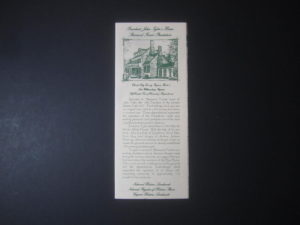
9. John Tyler (10th President – 1841-1845)
Poor John Tyler. We made it up to eight Presidents before we had one die in office and guess who got to take his place. When William Henry Harrison became the first President to die in office, John Tyler was sworn in as President. Many believed he was just supposed to be an “acting President” until Harrison’s term was up and then someone who was actually elected to that position could lead our country.
I’m not real sure what these people were really expecting because Tyler had almost the entire Harrison term (Harrison died one month into his term) to serve out. Tyler would have none of this train of thought and he would stay true to his convictions. This really rattled his opponents. He was put on the ticket to balance Harrison, which meant he had very different views than Harrison on how the nation should be run. As a rule, most of the future Vice Presidents, called to serve out the man they replaced, tend to honor the former President by championing his policies and keeping his cabinet. Not Tyler, though. Regardless, Tyler set most of the precedents that are followed when a Vice President replaces a President.
Claim to Fame: Tyler came from an age when the President – Vice President team were not on the same page. The hope under this type of partnership was that a larger part of the population would vote for this team as opposed to the other team they were running against. Once the election was over, the President and Vice President rarely had anything to do with each other. Since no President had died in office at this point, no one ever gave it a second thought that Tyler would actually become President. So, Tyler’s basic claim to fame was that he had a total opposite view to the President he served under.
Interesting Fact: When the Southern States seceded to form the Confederacy, Tyler, who was from Virginia, would serve in the Senate chamber of the Confederacy.
Why isn’t John Tyler popular? When Tyler joined the Confederacy, he was labeled a traitor. His death, even though he had been a President, was not even noted in most Northern newspapers. I believe his popularity never recovered from that.
My favorite Tyler blog: John Tyler – Early Political Career, Serving the Confederate House and His Death
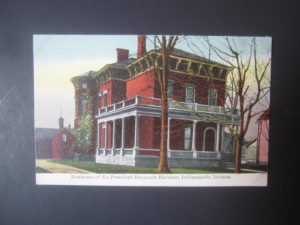
8. Benjamin Harrison (23rd President – 1889-1893)
Benjamin Harrison’s name is often one of those easy Presidential answers to trivia games. He is the only grandson of a President to become President and he is the man who sits in-between Grover Cleveland’s two nonconsecutive terms. He was thrown into office by dissatisfaction over President Cleveland. Four years later the nation decided Cleveland wasn’t so bad and they threw out Harrison. Benjamin Harrison is the only person who beat a sitting President and then lost to that same person for the Presidency when he ran for reelection. Harrison was great in front of a crowd, but awful with one-on-one relationships. When his wife died, while he was in office, Harrison almost seemed relieved that he was not reelected.
Claim to Fame: Benjamin Harrison was a great speaker. He did not even have to campaign for the Presidency. Crowds of people would come to his house and he would stand out on his porch and give a speech. This strategy worked in his first Presidential election, but not in his reelection bid.
Interesting Fact: Benjamin’s father’s body was robbed from its grave despite the family taking measures to prevent it. It was discovered in a med school, by accident, when his brother was looking for another body that had been robbed from its grave.
Why isn’t Benjamin Harrison popular? Without the personality necessary during his Presidency to win over people, he was almost a sitting duck for his reelection bid. He didn’t really build the bonds with people needed to successfully set up a reelection campaign. Staying in the White House, and not campaigning, didn’t work the second time. His nickname was the “Human Iceberg” and I don’t think history has done much to change that image. Americans have probably thought he wasn’t worth remembering.
My favorite Benjamin Harrison blog: John Scott Harrison – William Henry Harrison’s Son – Benjamin Harrison’s Father
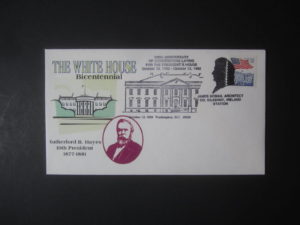
7. Rutherford B. Hayes (19th President – 1877-1881)
Rutherford B. Hayes might be the reason for my interest in the Presidents. Like most elementary school students, I was given the task of writing about one of the Presidents. My lucky draw was Hayes. I haven’t had any better luck with the lottery either. Still, I got an “A,” which, for someone who wasn’t very good in English, was quite the accomplishment.
Hayes was a Brevet Major General during the Civil War, who was wounded five times. He is best remembered for the very close election of 1876 and for ending Reconstruction after the Civil War. Many question if those two events went hand-in-hand. One has to wonder if ending Reconstruction so soon after the Civil War has led to many of the racial problems we have today.
Claim to Fame: In a time when it was popular to be from Ohio and be a Republican, Hayes could claim both. He was a three time Governor of Ohio. Like most of the Presidents elected after the Civil War, he was also a Republican.
Interesting Fact: Hayes, along with Andrew Johnson and Bill Clinton, are the only Presidents who were born fatherless. All three of their fathers died before they were born.
Why isn’t Rutherford B. Hayes popular? The election of 1876 was a virtual tie. Hayes, a die-hard abolitionist, would probably be the last person you would think would end Reconstruction after the Civil War. Yet, when Democrats from the south strangely released 20 delegates in the election of 1876 to Hayes, he became President. Equally strange, the very next year after he became President, the Compromise of 1877 (basically ending Reconstruction) popped up and he signed it into law. Now his name only comes up in very close elections where the ending results are questioned.
My favorite Hayes blog: Rutherford B. Hayes – His Wife “Lemonade” Lucy
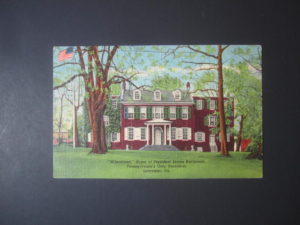
6. James Buchanan (15th President – 1857-1861)
Known as the bachelor President, he wasn’t actually the only bachelor to be elected President. Grover Cleveland was also a bachelor when he was elected to his first term. Cleveland just got married during that first term and Buchanan never married.
Like many of the pre-Civil War Presidents, Buchanan is often criticized for his lack of action being the eventual cause of the Civil War. Buchanan is often listed as one of the worst Presidents we have ever had. When the southern states started seceding, while he was President, and before Lincoln took over for him, Buchanan basically did nothing. His reasoning was that he believed the Constitution did not grant him the authority to do anything.
Claim to Fame: Buchanan was one of the most qualified people to become President. He served as a Representative, a Senator, US Ambassador to Russia, a Secretary of State, and Minister to Great Britain. The biggest reason for his election to the Presidency was that he was out of the country as the Minister to Great Britain while everyone was taking a stand one way or another on the slavery issues. His mouth was unable to isolate him on one side or the other of this issue because he was overseas. He was basically elected because no one really knew which side of the slavery issue he stood on.
Interesting Fact: Buchanan was actually engaged at one time. When the young woman died shortly after the breakup, many speculated that she committed suicide.
Why isn’t James Buchanan popular? Americans tend to like, or remember, Presidents of action. No one would ever accuse Buchanan of that.
My favorite Buchanan blog: James Buchanan – His Eye Problem
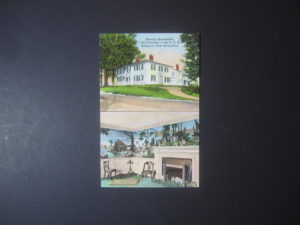
5. Franklin Pierce (14th President – 1853-1857)
Well, when you don’t even tell your wife that you are running for President, you probably have a lot of explaining to do when you get elected. Now you have a really upset wife. Then add in this, she believes God has said He doesn’t want you to be President. Then, as if it can’t get any worse, the train you are taking to your Inauguration derails. Your son is killed and your wife and you both see his decapitated body. Not a great start to Pierce’s Presidency. His wife pretty much stayed in her room in the White House, not helping at all, while only wearing black.
There is much debate as to whether he was a heavy drinker or not, but most evidence points in that direction. Like Buchanan, he was a man of inaction. Even though he was from New Hampshire, his heart seemed to lean toward the Southern cause. After his Presidency, when he returned home to New Hampshire, many of his neighbors labeled him a traitor.
Claim to Fame: With the Democratic Party very divided on someone to run for President, Pierce was a candidate that both the Northern Democrats and Southern Democrats could agree on. It took them 49 ballots to come to that conclusion, though. Pierce, and his Vice President, William King, easily won the Election of 1852.
Interesting Fact: William King, Pierce’s Vice President, died shortly after they took office. King died in Cuba, and is the only Vice President to die outside the United States. No one is even sure if Pierce and King ever even had a serious conversation.
Why isn’t Franklin Pierce popular? Well, when your wife isn’t even happy with you being President, how do you expect the rest of the nation to feel about you being President? When you also have a reputation as a heavy drinker, I’m not too sure most people believe that is the best way to solve your problems, much less the nation’s problems.
My favorite Pierce blog: Franklin Pierce – His Best Friend Nathaniel Hawthorne
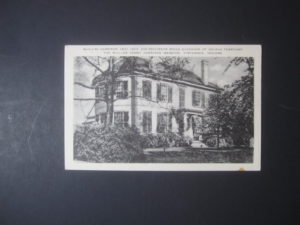
4. William Henry Harrison (9th President – 1841)
William Henry Harrison was one of those very popular generals who got elected President. As the Governor of the Indiana Territory, he negotiated eleven treaties with the Indians that gave our government an extra 60,000,000 acres for our western pioneers to roam free of Indian harassment.
In the election of 1840 Harrison easily knocked off sitting President Martin Van Buren. Van Buren had earned the nickname: Martin Van Ruin because of the bad shape of the economy. I guess, even in our early days, we voted our pocketbooks.
Claim to Fame: William Henry Harrison earned quite a reputation as an Indian fighter. When Shawnee Chief Tecumseh claimed that all the Indian tribes were really just one nation and that one tribe did not have the right to sell its land without the approval of all the tribes, Harrison dismissed this claim as ridiculous. One thing led to another and Harrison and his army eventually defeated the Shawnee and Tecumseh in the battle of Tippecanoe. Harrison’s popularity soared and it carried him right into the White House.
Interesting Fact: Tecumseh’s brother, Tenskwatawa, called The Prophet, became so upset with Harrison that he issued a curse that stated doom for the fate of all the “Great White Leaders.” It earned the name: The Curse of Tecumseh. Starting with Harrison, every President elected in a year ending in zero died in office. The curse was broken by Ronald Reagan, who was first elected in 1980.
Why isn’t William Henry Harrison popular? Okay, everyone knows that it is always best to listen to your mother, or at least for the things that help you get to adulthood. How many times did you fuss with your mom about not wanting to put your coat on when it was cold outside? How many of those fights did you win? For most people, later in life, they realize there were some very logical reasons why your mother told you to do or not to do things, like wear a coat in cold weather. So, even in adulthood, we often listen to that voice our mothers have stuck in our head, right? Apparently, not if you are William Henry Harrison. Despite his age (he was the oldest President elected, up until Ronald Reagan was elected 140 years later), on one of the coldest days ever in Washington DC, during his Inauguration, he refused to wear a coat. He gave one of the longest Inauguration speeches ever. He caught pneumonia and died one month later. Who wants to remember someone who doesn’t listen to his mom?
My favorite William Henry Harrison blog: William Henry Harrison – The Curse of Tecumseh
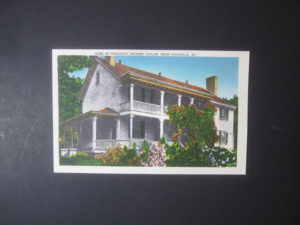
3. Zachary Taylor (12th President – 1849-1850)
Zachary Taylor, like William Henry Harrison and Rutherford B. Hayes, was a popular general who became President. It is believed that the first time he ever cast a vote in any election was in his own Presidential election. He even joked that he wasn’t sure if his wife even voted for him in that election.
Taylor was a very popular general during the Mexican War. Basically, Taylor and his army cake-walked down close to Mexico City. President Polk became a little jealous of Taylor’s popularity, and the possibility of him running for President. Polk called him back home so he couldn’t get even more popular. Despite those efforts, Taylor followed Polk into the White House.
Claim to Fame: Even today, Americans look real hard to find a hero they feel understands them and will stand up for them. This might have been a mixed-up conception with Taylor because no one really knew what he stood for. No one really knew, and I’m not completely convinced he did either, which party best described him. Personally, the reason I think he became a Whig was because Polk was a Democrat and he was upset with Polk because he called him home right before the ultimate victory could be claimed in the Mexican War.
Interesting Fact: Zachary Taylor, like William Henry Harrison, would die in office. He was the second President to die in office. Taylor is the only President to die in office that did not fall under the Curse of Tecumseh (Presidents elected in years ending in zero dying in office). He was elected in 1848.
Why isn’t Zachary Taylor popular? Taylor was one of those Presidents that served only a short period of time. He died a little over a year after he took office. We really didn’t get much of a chance to get to know him as President. His death, like that of William Henry Harrison’s, wasn’t one of those brave deaths your heart would break over, either. Legend has it that he died by eating some bad cherries and/or bad milk. Some thought he might have been poisoned. His body was dug up many years later and they performed tests on some of his hair to see if there were traces of arsenic in it. Even those results were less than Presidential. Basically, the results said, it is almost certain that is was probably not arsenic. It’s hard to remember someone whose cause of death used “certain” and “probably” in the same sentence.
My favorite Taylor blog: Zachary Taylor – Not Answering the Presidential Nomination Mail
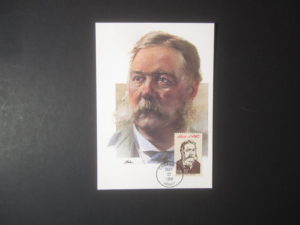
2. Chester Arthur (21st President – 1881-1885)
Out of all the people who have become President of the United States, I think almost everyone was, and still is, surprised that Chester Arthur became President. Arthur’s ascent to the Presidency came when he was Vice President and President Garfield failed to survive the assassination attempt that would eventually claim his life.
In another set of odd ball President – Vice President mixtures, Garfield and Arthur were on opposite ends of the hot topic of that day, political patronage. Garfield was a civil service reformer who wanted to eliminate political patronage. Arthur was one of the biggest victims of another reformer’s, Rutherford B. Hayes’, fight to eliminate political patronage.
Arthur, who grew up poor, was given the lucrative position of Collector of the Port of New York. His strong ties to the political machine of Senator Roscoe Conkling, earned him Conkling’s trust and Conkling asked President Grant to give Arthur the Collector position. Grant obeyed. When Hayes followed Grant into the White House, with his political patronage reform in the forefront, Hayes fired Arthur.
In a little bit of a move to get even, Conkling threw his support, which was needed to win the Republican nomination, Garfield’s way, if the Republicans added Arthur to the ticket. When Garfield died, everyone thought Arthur would do whatever Conkling said. To everyone’s surprise, Arthur stuck with Garfield’s political patronage reform ideas. Arthur would never be elected President in his own right, though.
Claim to Fame: Being a “yes man” to a political machine, at the right time, carried him into the White House. The Republican Party needed the support of that political machine and they were willing to give up the unimportant post of Vice President to get it. Arthur happened to be the pawn in the middle.
Interesting Fact: Long before questions of Obama’s birthplace were raised, Arthur had the same issue come up. Records on births back then were very limited. Arthur’s family moved back and forth across the Canadian-Vermont border. Arthur’s listed birthplace is in Vermont, but many believe he was actually born in Canada.
Why isn’t Chester Arthur popular? When Arthur switched to Garfield’s political agenda, it ticked off a lot of people in his own party. Arthur was unable to even win his party’s nomination in the election of 1884. Worst yet, the other party, the Democrats, won the election for the first time since 1856. Chester Arthur definitely wasn’t popular back then, and apparently he has remained that way until this day.
My favorite Arthur blog: Chester Arthur – Was He Born in America
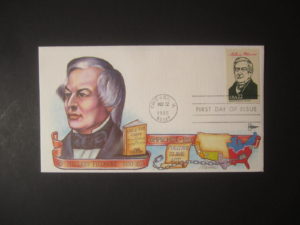
1. Millard Fillmore (13th President – 1850-1853)
Five of the nine Vice Presidents who have risen to the Presidency upon the death or resignation of the Presidents for which they served, never were elected to the Presidency on their own merits. Three of those five made my Top Ten Least Popular Presidents, including the top two.
Fillmore was the last of the Whig Presidents. He failed to win his party’s nomination when his term was up. He refused to give up. Four years later he was the Know Nothing’s Presidential nominee.
Fillmore’s big moment came when he was Vice President, which also carries the job as President of the Senate. The issue of the Compromise of 1850 came up. This act would delay the Civil War for a little more than a decade. Several territories were formed out of the land won during the Mexican War. Now the heated debate arose as to whether the states that were formed out of those territories would enter the United States as Free States or Slave States.
While he was Vice President, Fillmore, in his role as President of the Senate, got in a heated debate with Senator Benton. Fillmore ruled him “out of order.” Eventually, compromise leader Henry S. Foote got involved. The argument got so heated that Foote would even pull out his gun. Once Fillmore became President, he signed the compromise into law.
Claim to Fame: Slavery was the hot topic in the election of 1848. Henry Clay, Daniel Webster, and General Zachary Taylor were all battling it out for the Whig nomination. General Taylor proved too popular and took the top spot. Behind the scenes maneuvering then started for the Vice President slot. Trying to get something out of it, New York party boss, Thurlow Weed, who had Fillmore in his back pocket, persuaded Fillmore to withhold New York’s delegate’s support until he could get something out of it. Fillmore obeyed. The plan worked, but not the way Weed wanted it to. Weed wanted William Seward, not Fillmore to be the Vice Presidential candidate. Fillmore happened to be another one of those party bosses’ pawns that was in the right place at the right time.
Interesting Fact: Millard Fillmore, who grew up in poverty, and did not learn to read until later in life, became a very successful lawyer. He would not forget his humble beginnings. When a college offered him an honorary degree, he turned it down, stating that he would not accept a degree he could not read. At the time of the offer, he was probably very capable of reading it.
Why isn’t Millard Fillmore popular? Sorry, but to me, Millard is just not a very Presidential name. Besides, when you win the Know Nothing Party’s nomination, how can you expect anyone to remember you?
My favorite Fillmore blog: Millard Fillmore – The Know Nothing Party
Summary:
Strangely, seven of my Ten Most Least Popular Presidents were in the ninth through fifteenth Presidential slots. Maybe that was a period in which our country was trying to figure out what we wanted our leader to be. The Founding Fathers were gone, and the giant persona of Andrew Jackson had passed. Now Congress and the President had to battle to see who would wield the most control over the nation’s direction.
Two of the Presidents on the list died in office and three others were Vice Presidents who became President on the death of a President, but were never elected on their own right. The two that died only served a very short time so it is understandable why their tenure might be forgotten. The three Vice Presidents seem to struggle to find that balance between standing up for who they were and a sense of duty for the President they replaced.
The other two, Benjamin Harrison and Rutherford Hayes, seem to come from periods where the nation, like now, seemed deeply divided. Their tenures seem to have done very little to change that tide and they just seemed to have washed out into the deep blue sea of our memories.

